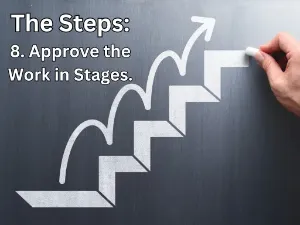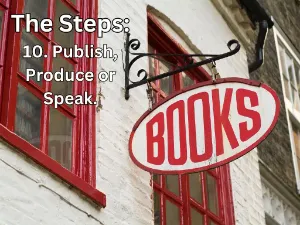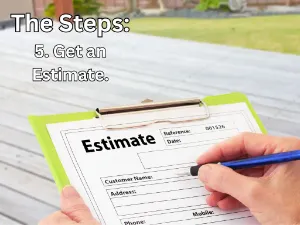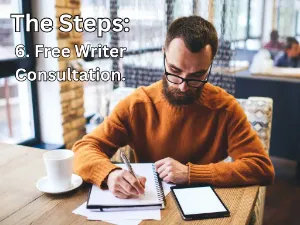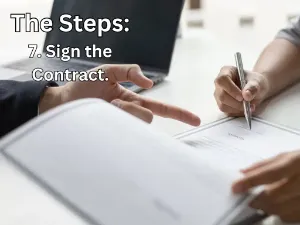Wedding officiant speechwriting services: An introduction to the ceremony and the speech. Getting from frozen to thawing at the altar.
By- Rev. Paul Shively, retired
Officiating a wedding ceremony is truly an honor and only the brave accept the challenge, especially if you are a layperson. Pastors, ministers, rabbis and others have the help of books written by leaders of their faith or denomination, which offer guidance and tradition. You, as a layperson, may not have the same support.
As the officiant, you’re standing alone at the front. The room is quiet as everyone is attentively listening to the words you’ll bring forth to honor and join the loving couple in marriage. All eyes are on you as the one in charge of the wedding ceremony. The decision on whether to rush through it or make it a memorable day may depend on how seriously you take your role.
Depending on where you live, the county clerk’s office will swear you in as a wedding officiant in the absence of ministerial credentials. That means you are assuming a legally-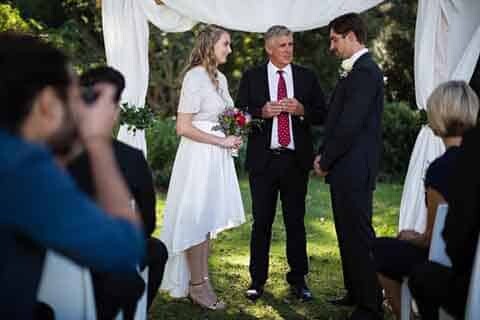
What will you say?
You did not realize the burden of the position of officiant when you joyfully accepted the position. What is next? What will I say? What if I mess it all up? As you sit there with pen and pad, or in front of your computer, the weight of the event sinks in. That dreaded virus that descends upon even the most seasoned writer sets in. The infamous writer’s block.
Sitting there staring at a blank screen, looking for inspiration, you cry out, “Google, my best friend, give me the answers I need.” You ask Google a simple question: How do I perform a wedding?
Instantly, the screen displays online ordinations, checklists and search results that just do not make any sense. Especially the “cheap local wedding officiants” reference you keep staring at.
So, we are back to a blank screen once again. Your fingers take the lead, as you type the name of the wedding couple, perfectly centered at the top of the page. Oh, and you cannot forget the date. Type that under their name. There, you are ready to begin. You lean back proudly in your chair, until the panic begins to descend upon you, as you ask yourself, “What the heck am I doing?”
Relieving the panic
Back to Google. A quick search of wedding vows should do the trick. As you scroll down the screen, you see examples that refer to playmates, confidants, being my greatest challenge, etc. Time to move on.
On to the third search. “Wedding vows for the officiant.” So, after you skip the offer to sell you a book on How to be a Wedding Officiant you scroll down to examples of traditional wedding vows and they are not what you were looking for.
You realize that the Internet searches have failed and you stare at the empty computer screen once again. Maybe you begin typing and inserting your friends’ names. Then what? What do you want me to say? Your fingers, poised at the keyboard, are frozen. Writer’s block sets in again.
Switching computer screens, you open your email account and begin to draft a quick email. “Hey friend, I want to make sure I say the right things when I perform the wedding ceremony.” Wait, you say to yourself. I cannot send that email, they might replace me with someone else! Pausing momentarily, reading the email repeatedly, as the mouse hovers over the delete button, and eventually you click and delete that hastily-written email.
Officiating begins with memories
So enough of the Internet searches and cheat sheets. Let’s do this the right way.
You have known the wedding couple for awhile. You may have even gone out with them on double dates, attended parties and events with them. Either the bride or the groom may be your best friend. Or maybe you are a respected mentor who has seen them through emotional difficulties. You have made an impact upon the lives of the bride or the groom. So much so that they have asked you to play a vital role in their upcoming wedding.
Memories, events, and emotions are what bind your friendship and the same set of memories, events, and emotions, brought them to a decision to get married. And this is where you begin. Delete those Internet samples of vows. Start a new page on your computer with the heading of “Memories.”
This is where great speeches are prepared. The memories within our minds.
You as the personally-selected and chosen officiant can turn a humdrum service into a memorable event. Who said you had to use the utterings of a traditional set of wedding vows? You can make this wedding memorable! What is holding you back?
Weddings can get complicated
But before you let things get out of control, as your imagination runs wild, understand that weddings are and can be complicated. Emotions are in high gear on the wedding day, the bride’s level of anxiety may be at an all-time high. The groom, after having his last night as an unmarried person, might still be a little hung over.
Suddenly your role as the officiant may have changed, ever so slightly. You are expected to hold things together and get everyone in place for the service, as you are battling your own anxiety and fears of forgetting the speech you spent hours writing.
At one of the first weddings I officiated in my early years as a pastor, I was the one in a panic. In preparation of the service, and using a pastor’s handbook for weddings instead of typing out the service I was prepared to deliver, I cut up several Post-it Notes and had them sticking out from various pages, all numbered in the order of delivery. After making sure everyone was ready and the wedding procession was going to be timely, I walked to the pulpit for a last review of my numbering system.
As I approached, a young member of the wedding party, about 8 years old, stopped me. Smiling she said,” Pastor, I cleaned up your book for you” and handed me the Post-it Note strips of colored paper from my pastor’s handbook. As she skipped away, believing that she had done a good deed, my heart raced. You must understand that is why I could never be an actor. I could never remember my lines. As I stood at the pulpit, feeling perspiration run down the sides of my torso, I did my best to remember the message I was going to deliver, and the vows selected for the wedding couple. (From that point on, my notes for subsequent services were typed and placed in a three-ring binder. As technology evolved, the binder was replaced with an iPad.)
What saved me from my own panic that day was a speech that evolved from the memories shared with me by the young couple. A speech that was more memorable than the one I had spent hours preparing.
Memories can bring joy and laughter
A memorable speech for a wedding comes from memories…memories that can bring joy and produce subtle laughter. Not a time for historical quotes from the legendary figures. But quotes from memorable events in the lives of the blissful couple bring smiles from all in attendance.
Depending on how long you have known either the bride or the groom, the memories could start with early childhood days of playing dress-up as a bride. Perhaps memories of early childhood sweethearts.
A speech like that walks the couple from early memories to where they are today, standing at the pulpit, smiling at each other, and delivering the exchange of wedding vows. The way you deliver the speech is particularly important. Drop the monotones and practice voice inflections. Movie and TV scripts have places in them where a pause is indicated by the term “beat.” I use the insertion of three hyphens, like this, “- – -“. Pause where indicated and make eye contact with the people in front of you. Alternatively, this ghostwriter service can arrange for you to practice your speech on live video.
Practice delivering three sentences at a time. Those in attendance are not there to look at the top of your bowed head as you read your speech. Look out at them and smile. Deliver that memorable speech with emotion and passion. Let your feelings flow as you speak. If you talk with your hands, let them fly. You may be surprised that the tone and delivery of your speech can relieve the anxiety of the wedding couple as they exchange vows.
And what about those sordid moments?
As you prepare your speech, make a list of memorable moments. Leave out sordid details of embarrassing moments. Those are for the reception later.
Maybe begin your speech with opening lines such as:
“I have known Julie and John for over 12 years. We grew up together. Through good times and bad. The stories I could tell you – – – (note the pause). “But I will not share those stories today. We are here now to celebrate the beginning of a lifelong journey of….”
Your opening sets the pace for the delivery of your speech and defines the reason for today’s gathering.
Presidents and other key figures have speech writers for a reason. Speech writers are people that can take a single sentence and turn it into entire story. Speech writers let their thoughts flow effortlessly through their fingers to the keyboard. Having the ability to place themselves in the role of the speech maker is a key component of writing a speech for someone else. We’re talking about the ability to inflect emotion, pauses and quotes that will have a tremendous impact on the speech. Speech writers typically retype the same line repeatedly with variations, as they seek the perfect set of words that will make the speech the standard of excellence.
If stuck or out of time
But not everyone is a writer. If you’ve decided that writing your own wedding officiant speech is beyond your abilities, or perhaps you realize you simply don’t have the time to devote to it, Ghostwriters Central stands ready to assist with fully-qualified, experienced wedding officiant speech writers. The process normally begins with an interview to transfer your knowledge to the writer. To start, just click on contact a speechwriter.


